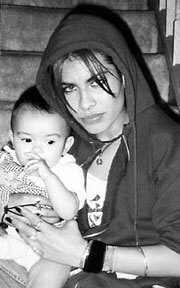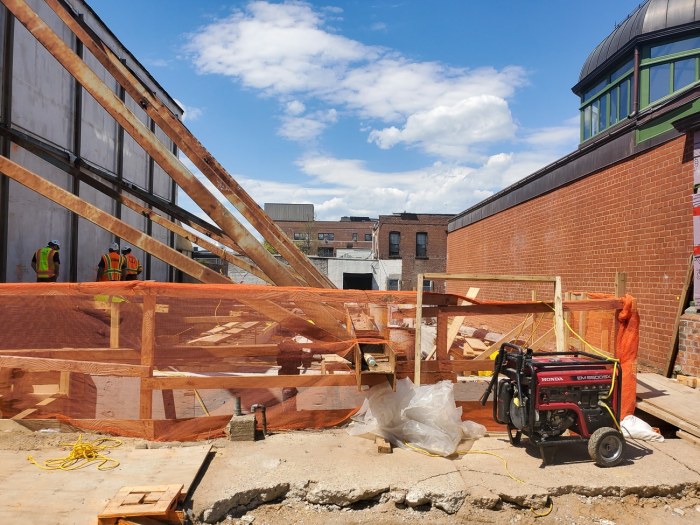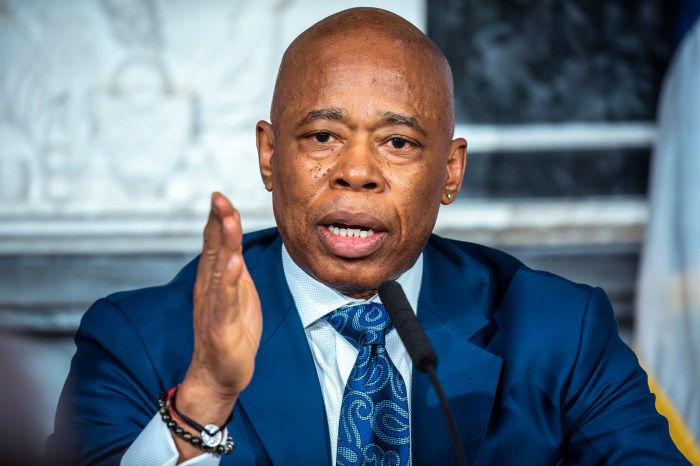VOLUME 3, ISSUE 313 | March 25 – 31, 2004
LEGAL
Araujo Murder Trial Begins
Three men face life in prison in 2002 slaying of transgendered California teen
On October 16, 2002, Jaron Nabors led police to a shallow rock-strewn grave in the California Sierra foothills where he and three friends had, he said, 13 days before, buried the battered body of Newark, California transgendered teenager Gwen Araujo.
On March 15, a year and a half later, lawyers for Nabors’ trio of friends and prosecutors started jury selection for a trial in the brutal murder. Prosecutors say that Nabors, 20, and his friends, Michael Magidson, 23, and Jose Merel and Jason Cazares, both 24, verbally abused, beat, tortured, and finally strangled the 17-year-old Araujo at Merel’s Newark, California home. Newark is a small heavily Latino city of 43,000, on the fringes of California’s Silicon Valley. Later the night of the killing, prosecutors say, the four drove northeast roughly 150 miles to a remote campground near Silver Lake in the Sierra and buried Araujo.
Before a preliminary hearing last March, Nabors pleaded guilty to voluntary manslaughter and, at the hearing, testified against his three former friends in exchange for an 11-year prison term.
During the hearing, witnesses said that Merel and Magidson had sex with Araujo, the murder victim. Araujo was born Edward, often called herself Gwen, but was known to the alleged murderers only as a girl named Lida. Nabors said they were enraged when they discovered that the transgendered teen was biologically male.
“I can’t be gay, I can’t be fucking gay,” Merel reportedly said before he allegedly began the approximately two-hour series of beatings and abuse that ended in Araujo’s death.
While questioning jurors on March 23, Magidson’s lawyer, Michael Thorman, suggested he might, as he did at the preliminary hearing, try to show that his client acted in a fit of rage––and is therefore eligible for a reduced charge of manslaughter.
By the end of the day on March 15, more than half of the 100-person jury pool had asked to be excused from what promises to be at least a three-month trial. Another 100 filled out a questionnaire this week which asked if they knew anyone gay, lesbian, bisexual, or transgendered, if they have ever met any transgendered people, and if they knew anyone who got married in San Francisco’s same-sex weddings. San Francisco is about a half an hour, by car, from the courthouse in Hayward near Newark.
Last Wednesday, Thorman asked Hayward Judge Harry Sheppard to move the trial out of Alameda County, across the bay from San Francisco, saying that he didn’t think they would be able to find an impartial jury for the case, which got extensive publicity before and during the preliminary hearing a year ago. Sheppard said no.
Prosecutor Chris Lamiero thinks jury selection will continue through this week, but hopes opening arguments will begin March 29.
The prosecution is expected to rely heavily on Nabors, the only eye-witness to the crimes. But his statements to police prior to the preliminary hearing were inconsistent, and, according to famed defense attorney Tony Serra who is defending Cazares, show he is an unreliable witness.
But, the prosecution has other evidence as well. The defendants made cellular telephone calls during their alleged trip to Silver Lake––and so phone company records track the route of that trip like radar, from cell site to cell site.
Police reports suggest that after the murder, defendants rolled Araujo’s body into a rectangle of blood-stained carpet cut from the Merel house. The body was wrapped in the same carpet when police unearthed it in Silver Lake.
When detectives first entered the Merel house, a few days after the murder, to make their arrests, they found a crudely hacked outline in the carpet of the family room, missing the rectangle in the middle.
The three remaining defendants have spent the last year in jail, waiting to be tried. After the preliminary hearing last March, another Alameda County judge, Kenneth Mark Burr, revoked the $1.65 million bail posted by Magidson’s parents and put him back in jail saying, “He’s the primary actor. He is a danger to the community.”
Burr also upheld the prosecutor’s decision to enhance the murder case by charging that the defendants’ actions constituted a hate crime. The defendants face terms of 29 years to life in state prison, including the hate crime enhancement, if convicted.
None of the defendants is eligible for California’s death penalty, which applies only to cases that involve lying in wait, multiple murders, or murders committed during the commission of another crime.


































